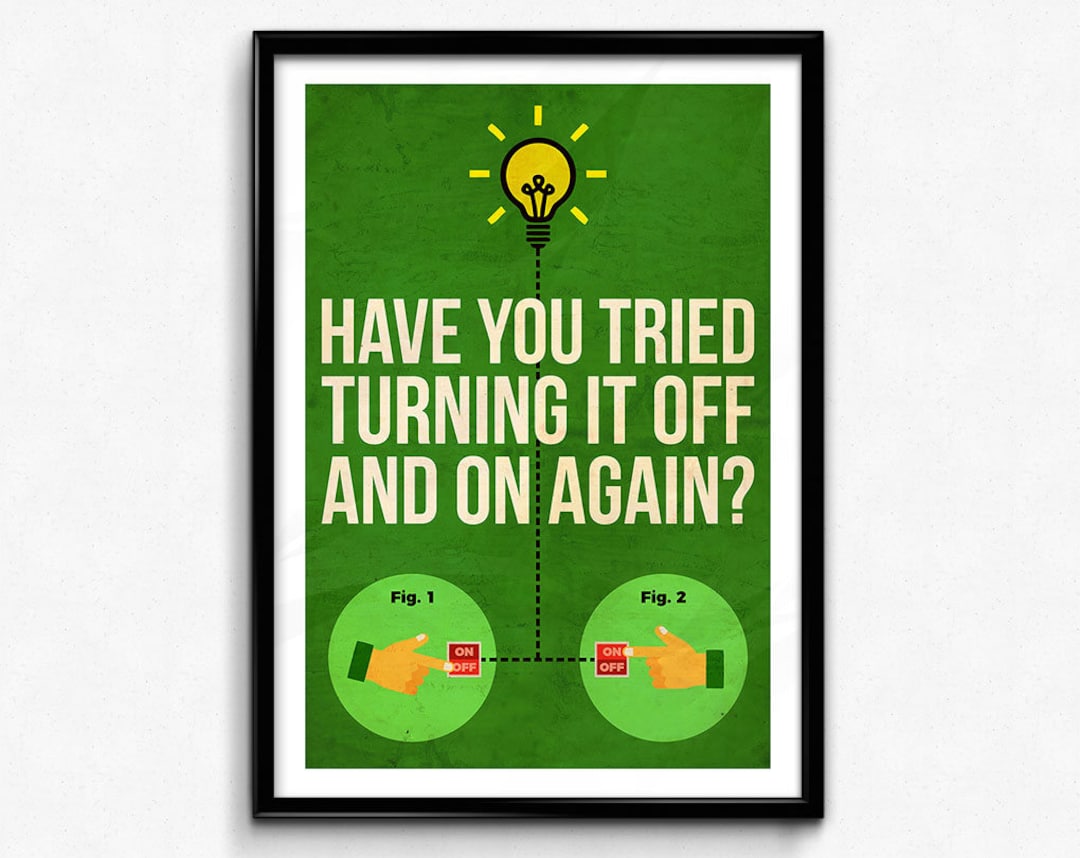- cross-posted to:
- [email protected]
- cross-posted to:
- [email protected]
Once upon a time, newly minted graduates dreamt of creating online social media that would bring people closer together.
That dream is now all but a distant memory. In 2024, there aren’t many ills social networks don’t stand accused of: the platforms are singled out for spreading “fake news”, for serving as Russian and Chinese vehicles to destabilise democracies, as well as for capturing our attention and selling it to shadowy merchants through micro targeting. The popular success of documentaries and essays on the allegedly huge social costs of social media illustrates this.
-
Studies suggest that if individuals regularly clash over political issues online, this is partly due to psychological and socioeconomic factors independent of digital platforms.
-
In economically unequal and less democratic countries, individuals are most often victims of online hostility on social media (e.g., insults, threats, harassment, etc.). A phenomenon which seems to derive from frustrations generated by more repressive social environments and political regimes.
-
individuals who indulge most in online hostility are also those who are higher in status-driven risk taking. This personality trait corresponds to an orientation towards dominance, i.e., a propensity to seek to submit others to one’s will, for instance through intimidation. According to our cross-cultural data, individuals with this type of dominant personality are more numerous in unequal and non-democratic countries.
-
Similarly, independent analyses show that dominance is a key element in the psychology of political conflict, as it also predicts more sharing of “fake news” mocking or insulting political opponents, and more attraction to offline political conflict, in particular.
-
n summary, online political hostility appears to be largely the product of the interplay between particular personalities and social contexts repressing individual aspirations. It is the frustrations associated with social inequality that have made these people more aggressive, activating tendencies to see the world in terms of “us” vs “them”.
-
On a policy level, if we are to bring about a more harmonious Internet (and civil society), we will likely have to tackle wealth inequality and make our political institutions more democratic.
-
Recent analyses also remind us that social networks operate less as a mirror than as a distorting prism for the diversity of opinions in society. Outraged and potentially insulting political posts are generally written by people who are more committed to express themselves and more radical than the average person, whether it’s to signal their commitments, express anger, or mobilise others to join political causes.
-
Even when they represent a relatively small proportion of the written output on the networks, moralistic and hostile posts tend to be promoted by algorithms programmed to push forward content capable of attracting attention and triggering responses, of which divisive political messages are an important part.
-
On the other hand, the majority of users, who are more moderate and less dogmatic, are more reluctant to get involved in political discussions that rarely reward good faith in argumentation and often escalate into outbursts of hatred.
-
Social media use seems to contribute to increasing political hostility and polarisation through at least one mechanism: exposure to caricatural versions of the political convictions of one’s rivals.
-
The way in which most people express their political convictions – both on social media and at the coffee machine – is rather lacking in nuance and tactfulness. It tends to reduce opposing positions to demonised caricatures, and is less concerned with persuading the other side than with signaling devotion to particular groups or causes, galvanising people who already agree with you, and maintaining connections with like-minded friends.
I thought this was a well established fact.
It is, but presumably phrasing it as a question increases engagement (or was thought to) hence furthers the OP’s goal, in spite of the factual nature.
i.e. the same reason that Trump was allowed to walk all over the “moderators” at the recent Presidential
advertisement“debate”.You know, “journalism” as it seems to always be practiced these days. As in, chase the profits to the exclusion of all other considerations.
Hrm, I wonder if my time spent on social media has made me more hostile to such predatory practices overall…
Even if it weren’t, 10 minutes of scrolling confirms it’s true
There are no “facts” about vague ideological terms.
Thanks ChatGPT
Oh my. Sometimes Betteridge’s law of headlines is wrong.
Sometimes the author feels the need to pretend to answer a question we already know the answer to.
yes.
Does a bear shit in the woods?
Is the sky blue?
is engagement-driven content scoring harmful to everyone with a pulse? does pope shit in the woods? click here to find how
Instructions unclear, now have Pope following me around the woods trying to poop on me - help!?

I think what it all comes down to is most people don’t really want rational debate, and don’t participate in debates in the hope of learning or even to help others learn. Most people participate in debates to feel superior/“own” the other side. The result is debates that are typically lazy, uninformative, and downright mean.
I think all of us have a little bit of this desire for superiority in us and we need to consciously make an effort to suppress it.
Yes, and social media deliver on that wish by punishing nuanced opinions and anything which is not the lowest common denominator.
And they did that from the very beginning.
In the olden days what was acceptable on a web forum was defined by its owner and some mods. Everything had an alternative, people would communicate over few systems simultaneously - the forums themselves, ICQ, mail. When you were banned on some forum, you didn’t lose anyone of the people there.
It was certain that you can’t silence someone just by banning them. And conflicts were regular, so somebody and their friends would be banned or leave some place, but they were still part of a larger social fabric on some subject.
Social media style hate storms and insularity actually were discouraged. They bothered the mods, other people and in general were stopped by banning all participants for a month or so in the specific place the argument happened.
And what’s the normal behavior for social media today was unambiguously considered trolling back then. All of it.
When normies came to social media, they realized that now yes, you can silence anyone you don’t like, just have more friends or gaslight more strangers and that’s it. And you can troll as much as you want if it attracts more attention. In a social network there’s only one authority.
It was false in the beginning, people were not effectively silenced, and disinformation wasn’t that strong, but with more people moving to social media it became true.
I have seen social media described as “microblogging”, but I don’t think that’s true. Or rather, actual blogs like on WordPress are one thing, but the more “conversation” style is something else entirely. Phrases such as “^This”, “I also choose this guy’s wife”, “and my axe” reveal that the true purpose of social media is emotional venting, rather than conveyance of information. For some people at least - and depending on moderation practices and abilities, and on communities setting up expectations, the level of discourse may be either higher or lower, but even so, foundationally, isn’t that what this place is for?
After all, Wikipedia articles are one thing, essays and poetry are another, blogs are still another (with the level of effort being put into their crafting), and finally at the lowest end, social media is found where we just blurt out whatever we are thinking about at any given moment.
Mind you, it can be done well - I have had people convince me of my privilege status & thus shepherd me into wokeness even on Facebook, which is not known for such - but even so, isn’t the true purpose of a thing what it mostly does? Like a vehicle isn’t a coffee holder, despite it being capable of that, as well as many other things.
Some people’s thoughts are just more worth listening to than others. Hence why microblogging e.g. Twitter/X & Mastodon can aim at a higher end, as too can Reddit & Lemmy/K/Mbin (+ soon: Sublinks), but it seems rarely used for its maximum purpose and far more often for its emotive vomit aka “share every single one of our uncurated thoughts”. Case in point: my message right here, which unlike a “blog post” took me <5 minutes to create.:-P
Btw, check out https://medium.com/@max.p.schlienger/the-cargo-cult-of-the-ennui-engine-890c541cebcb for an example of what I would consider a more worthwhile post. Sometimes, imho, it is okay to aim for more quality than quantity of posts, even if that seems antithetical to the goal of “social media” that aims instead to connect people together to just shoot the shit amongst ourselves.
Media in general has always done this, why Murdoch is usually the first person slithering through the door of most western leaders. Make it football teams and drama people are easy to control.
When I look at how much Nigel Farage has been platformed in the UK the press helped manufacture the consent for Brexit and the big far right swing that is coming with it. What were quite isolated social media views have become very mainstream and on the TV all the time. Society is now quite open about a lot of far right talking points. Social media is a part of the media landscape but it didn’t make the far right figures popular that was all the traditional presses doing.
Even now they cover and platform Nigel Farage about 100x as much as they do any Green candidate, and yet the Greens hold more MP and council seats. Same with the Lib Dems who are bigger than Reform and yet the press is constantly platforming Reform. Its hard to look at traditional media and see anything but a big swing to the right in the last decade and they have led every step of the way.
It’s a good point/observation.
Makes me wonder how different things might be if the mainstream media were more neutral and less prone to sensationalising everything and stirring outrage.
Social media just adds another layer on top of this.
If a party is consistently a close third or even second in some opinion polls, the media HAS to cover them more. Not only to be representative, but also to scrutinise.
The difference is that they can boil the frog gradually.
Traditional media tries to move people, absolutely. But a newspaper has to address the crazies and try to convert people into crazies in the same paper. If they’re too extreme, more moderate people can see that right away, and it’s easier to minimize engagement with it.
With social media, you personalize the content surfaced. You start by making it seem mostly sane, with an out there idea here or there. Then, as they start to engage with the slightly mild stuff, you move the “mostly sane” in that direction, and the “mild” moves a couple extra steps. Now, you’re part of a movement. Everyone around you is changing their beliefs, and the new ones aren’t that far off from your previous beliefs, so why not follow?
6 months later, you were always pretty left/right-leaning (cognitive dissonance, baybee!!!). But it looks like the consensus is finally shifting your way. It’s just a small step further right/left, and everyone around you is making it too. The world is changing for a better, so let’s be that change.
I have been thinking if it is possible to integrate ActivityPub with static websites like personal blogs. Maybe that could replace social media for something more personal and curated.
Oh and then you could add these things called “rings” to the bottom of your website to jump to other websites with similar topics.
Phooey, I am old enough to get this reference!
That’s in some sense getting back to the “open protocols” idea of ~2005, with federation and common identities. You’d still have 1) bothersome process of maintaining such a site, 2) problems how to find such, 3) an identity provider which can go down with your identity, like a Lemmy instance can.
It’s insufficient. Facebook and others have used an existing demand for a recommendation system and automatic moderation and search and all this junk.
I’m enthusiastic about Locutus.
Not exactly what you’re looking for, but most small blogs support rss. That’s enough if you just want a personal feed, and one could really easily build a bot to post articles onto Mastodon or Lemmy or similar. I’d be surprised if there isn’t already one.
I have been thinking the same. Maybe ghost.org’s federation over ActivityPub can solve the problem?
WordPress supports activity pub
Yes, I’m all in on that!
Ever since joining Lemmy I’ve noticed this awesome trend towards a modernized retro internet. Self/web hosted blogs, sites and apps. Not all that commercial giant bullshit but an oldschool mesh of servers. Activitypub and stuff will be awesome in creating a new subset that is more in line with the original designs for the internet.
Yes, it’s a cycle. Social media fuels polarization, and polarization drives engagement, engagement fuels social media, which reinvests into fueling polarization and around it goes
If you hang out in the politics subs, you’re going to get political shills and bots with agendas. Either learn how to detect and avoid them or just don’t hang out in those subs.
Social Media. The platforms built originally to keep us connected and able to share knowledge with one another instantaneously. Has now been hijacked by corporations and governments as a method of controlling us.
We also do it to ourselves. Everyone has someone in their life they’d rather mute. But they’re forced to coexist with them. Online is so appealing because you can find communities of like minded individuals. Then forget all about those other opinions you don’t like.
You grow in this bubble as they grow in theirs. By the next time you’re forced to interact, you feel so alien and unpleasant to one another it’s confusing and frightening. Corporations are right there to sell you on a story about how the other side are demons destroying the world. We gobble it up.
We also do it to ourselves. Everyone has someone in their life they’d rather mute. But they’re forced to coexist with them. Online is so appealing because you can find communities of like minded individuals. Then forget all about those other opinions you don’t like.
Groups with just things we agree with wouldn’t explain it. What happens is we go into groups of people we agree with and then post memes about the other side that everyone agrees with. We get a caricature of the opposition that is reinforced.
As evidence, just look how much news about Trump gets posted to liberal places. If you don’t want to hear about him that’s the last place you should go.
It’s still ideas the group agrees with. The idea is: that we all disagree with this idea. It’s subtle, until you look at the same story on CNN vs Fox. Two bubbles discussing the same issue with two VERY different emotional valences.
To put it another way: the discussion of these ideas that are oppositional to the community, is not with the intention of seriously considering them. It’s with the intention of dismissing them in a group act of catharsis. It maintains the bubble and safely dispatches an idea that threatened to burst it.
No duh
Yup
Very well summarized, I think this hits the majority of the most relevant points.
No. It’s not “social media”. It’s capitalism, colonialism, imperialism, etc. It’s always been a struggle of oppressed against oppressor. People fighting for their land and lives against violent overlords. Not much new here. Blaming apps is a counter-productive distraction.















